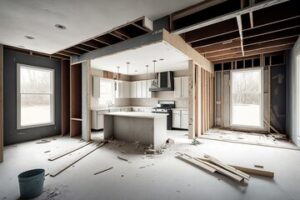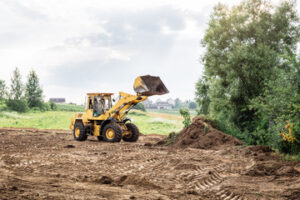Plumbers specialize in the installation and repair of pipes, fixtures, and appliances that facilitate water, gas, and waste disposal in residential and commercial settings. They also inspect and maintain plumbing systems to ensure compliance with building codes and regulations.

Key job qualifications include tool proficiency, physical fitness, and customer service skills. Plumbers Bradenton often work evenings and weekends to meet emergency service calls.
Whether you have a leaky faucet or clogged drain, a residential plumber is your best bet for quick and efficient service. They can also help you plan upgrades and remodeling projects, or install new fixtures. Some even offer emergency services for situations like sewer backups. You can find a plumber who specializes in residential plumbing by asking family and friends for recommendations, or by looking online.
In addition to installing pipes, a residential plumber can also repair or replace existing ones. This includes fixing dripping faucets and toilets, as well as repairing or replacing water heaters. They can also handle more complex tasks like relocating water supply lines and drainage systems. Unlike commercial plumbers, residential plumbers are more likely to work on smaller-scale plumbing systems.
Many homeowners take on DIY projects like rerouting their home’s plumbing to accommodate a new kitchen or bathroom. However, this can be a complicated and dangerous job that requires specialized tools and knowledge. A professional residential plumber can ensure that the job is done correctly and safely. They can also recommend other services like septic tank cleaning or garbage disposal installation.
If you’re building an addition to your house, a residential plumber can install the necessary plumbing fixtures. They can also help you choose and install appliances like washers, dryers, dishwashers, and refrigerators. In addition to ensuring that these appliances are functioning properly, a plumber can ensure that they match your home’s aesthetic.
Choosing the right plumber can make all the difference in the quality of your plumbing system. Look for one who offers guarantees or warranties on their work, as this shows a level of confidence in their abilities. Additionally, it’s a good idea to hire a plumber who is licensed and insured, as this will protect you in case of any problems with the work they do. Finally, be sure to ask about their experience and pricing options before hiring them. This will help you choose a plumber who is both qualified and within your budget.
Commercial
Unlike residential plumbing, commercial plumbers handle much more complex and extensive systems. They install, maintain, and repair piping and drainage in large commercial buildings such as restaurants, hospitals, shopping centres, and apartment complexes. They must meet more rigorous requirements than those of a residential plumber, including higher insurance coverages and stricter adherence to building codes. In addition, a commercial plumber must be able to work around the needs of a business, which can require them to operate outside regular business hours.
Plumbing problems in a restaurant or hospital can have much more serious consequences than those in a home. Because of this, it is essential for commercial plumbers to have a thorough understanding of the unique plumbing needs of each space and to be able to diagnose any issues quickly and accurately. They must also be able to work with different types of water-dependent equipment and materials, such as steam generators and high-pressure pipes.
Since a commercial building’s piping and drainage system is larger and more complicated than a residential one, there is a greater chance that something can go wrong. As such, it’s crucial for commercial plumbers to be able to troubleshoot issues and have the tools necessary to make repairs as soon as they arise. This can help minimize disruptions and keep the flow of business moving as smoothly as possible.
Additionally, because commercial spaces are busier and have more people using them than residential ones, they tend to experience more wear and tear. This can cause pipes to wear down faster, leading to leaks or clogs. It’s therefore important for commercial plumbers to perform regular inspections and maintenance to ensure that everything is functioning properly. This can help prevent small problems from becoming bigger, more expensive problems down the line. Many commercial plumbers offer services agreements that can help business owners budget for regular maintenance and catch any potential issues before they become bigger problems. This can save both time and money for both parties.
Industrial
In addition to the physical demands of plumbing, which can include lifting heavy pipes and working in tight spaces, plumbers also face a variety of safety risks. From slippery floors to toxic chemicals and gasses, it’s important for plumbers to take precautions when on the job. This is especially true for industrial plumbers, who may work in factories or sprawling power plants. To protect themselves, industrial plumbers should wear a mask when working around hazardous materials and make sure that there’s plenty of fresh air flowing through their workspaces.
Plumbing systems in commercial properties are generally larger and more complex than residential ones, so commercial plumbers must have a wider range of skills to maintain them. This includes being able to install and repair large water heaters and other appliances with higher capacities. Additionally, they must be able to understand and interpret blueprints and building plans in order to properly install plumbing systems that meet the requirements of the property.
In addition, commercial plumbers must be able to deal with the higher water demand of businesses such as schools and hospitals. Leaky taps or inefficient water heating can cause major problems in these settings, so they must be able to diagnose and repair them quickly and effectively.
Another important skill set for commercial plumbers is being able to work well with other tradespeople on construction sites. These professionals often need to collaborate with electricians and HVAC technicians to install and connect plumbing to new appliances and systems. Additionally, they must be able to follow strict timeframes and schedules when working on site.
Industrial plumbers offer a vital service to businesses and facilities operating on a larger scale. Their expertise ensures that plumbing systems are installed and maintained correctly, so that business operations can continue without disruption. They also have the knowledge and experience to tackle specialised issues, such as backflow prevention, commercial kitchen plumbing, and septic system installation and maintenance. If you’re looking for a reliable industrial plumber in Sydney, look no further than Wentworth Plumbing. We provide high-quality plumbing services that are tailored to your specific needs, so you can focus on running your business smoothly and efficiently.
Construction
Plumbers who specialize in construction plumbing work use their skills to install and repair pipes in new buildings. They work with a variety of tools and may travel between job sites. They sometimes work with chemicals and other hazardous materials, so they need to follow strict safety protocols. They also need to be comfortable working in tight spaces and lifting heavy objects.
Plumbers working in construction often collaborate with other members of the building team to ensure that plumbing systems are integrated smoothly into project plans. This includes interpreting blueprints and plans to comply with regulations and codes. It also means ensuring that the proper amount of pipe is laid down for each fixture, and that drains are properly positioned to slope away from the home or business.
Construction plumbers install water, drainage and gas lines in new homes, businesses, hospitals, warehouses and other large structures. They may also be responsible for laying out fire sprinkler systems and installing large-scale water heaters. In addition, they might be called on to fix or replace faulty fixtures like toilets, sinks and tubs.
During the construction process, plumbers must carefully measure and mark the location of each piece of pipe before digging or cutting into it. This is a critical step, as misaligned pipes can cause drainage issues and even break the foundation of a structure. Once all of the pipes are in place, they must be rigorously tested to make sure that they are functioning correctly. Plumbers may also need to install appliances that rely on water, such as washing machines and dishwashers.
Although the work of a plumber can be fairly routine at times, it can also be very challenging and unpredictable. This is especially true for plumbers who work on emergency services, which can involve responding to calls at any time of the day or night. In these situations, it is important for plumbers to have strong problem-solving skills and be able to think on their feet in order to safely and effectively address the needs of customers.



